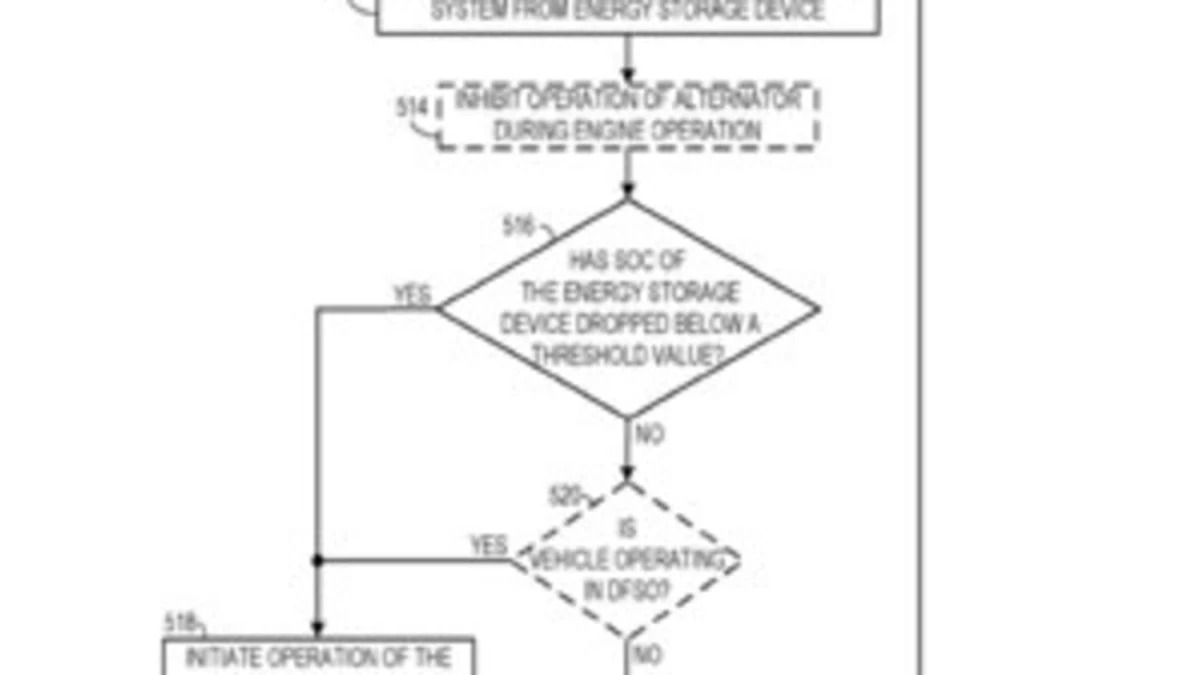Plug-in vehicles are all the rage right now – witness the Nissan Leaf, Chevrolet Volt and Ford Transit Connect Electric all coming to market between now and the end of the year. Unfortunately, electric and hybrid vehicles carry a significant price premium over conventional models (most of the time) so automakers like Ford are looking for more cost-effective improvements that can be applied to millions of conventionally powered vehicles.
Starting with BMW in Europe a couple of years ago, a number of automakers have begun adopting some hybrid technology into non-hybid vehicles, most notably brake energy regeneration. With these systems, the alternator is essentially disengaged except when the vehicle is coasting or braking, cutting parasitic load on the engine.
Ford's latest patent application goes even further by adding what would presumably be a larger capacity, more powerful battery, perhaps even lithium ion with a plug-in charging system. This battery would completely power all of the vehicle's electrical systems, including the ignition system, without using the alternator at all. The battery would not be used in the powertrain. The alternator would only charge the battery if the state of charge dropped too low. It's not clear how long a vehicle could run this way, but such a setup could potentially improve fuel efficiency by as much as 15-20 percent while the battery had sufficient charge. A tip of the hat to Stam!
Starting with BMW in Europe a couple of years ago, a number of automakers have begun adopting some hybrid technology into non-hybid vehicles, most notably brake energy regeneration. With these systems, the alternator is essentially disengaged except when the vehicle is coasting or braking, cutting parasitic load on the engine.
Ford's latest patent application goes even further by adding what would presumably be a larger capacity, more powerful battery, perhaps even lithium ion with a plug-in charging system. This battery would completely power all of the vehicle's electrical systems, including the ignition system, without using the alternator at all. The battery would not be used in the powertrain. The alternator would only charge the battery if the state of charge dropped too low. It's not clear how long a vehicle could run this way, but such a setup could potentially improve fuel efficiency by as much as 15-20 percent while the battery had sufficient charge. A tip of the hat to Stam!


Sign in to post
Please sign in to leave a comment.
Continue